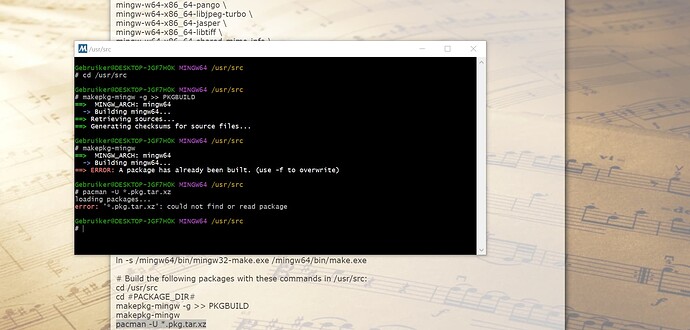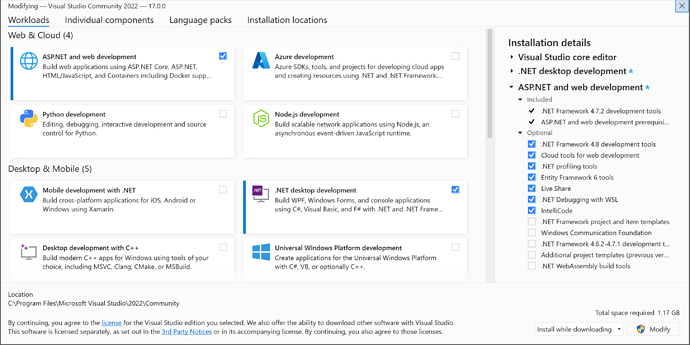Hi, I got Ardour cross compiled after a 3 weeks toil. I took a different approach from building a stack. I used Debian SID and mostly its source package to compile dependencies, which I build creating a .deb file. This way, replication can be quick and the dependencies can be easily kept update.
As I solved the issues of each dependency one by one, I understand why the Ardour team does not advise to make a Windows build. If just a small thing changes or you forget about it, you can easily ruin the whole stack. The official built depends on a dated stack, and nobody dares to touch it, because it would mean pain. Some patches and libraries are no longer available. I suspect the build scripts are pretty “ugly” also, and therefore they are not meant for distribution. And there is no easy way to build a universal and updatable stack.
I found some Fedora projects, which will not build to the end with updated packages. I went almost to the end with that too, but I preferred the Debian approach, as I could use more updated packages.
I tried MXE, but it also needs severe modifications to work properly.
Now, I really feel there is a need for a cross compilation environment that will allow to compile most music software for Linux on Windows. Also the LMMS stack, which is meant for Ubuntu, is quite old. I understand how this should be a project by itself… but it makes no sense to have a software like Ardour without a way to compile it for Windows. I would like something that is cross-platform. I would not use Ardour if I knew that in a couple of years there will be no version for Windows, because the stack became too outdated. So, I think there should be an effort in this direction.
I would like to offer my scripts, if there is interest. Also, I solved the “stack”, but there are still issues. When I launch Ardour, and it goes past the first screens, it seg faults. So, it needs some debugging and maybe some libraries need to be recompiled again. When it will work, I think it will be the most up to date version of Ardour for Windows, and the base to make future builds.

